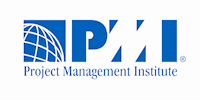Project Management Institute – Risk Management Professional (RMP)
eLearning course with 24X7 access
CMIT Learning
Summary
Add to basket or enquire
Overview
PMI’s Risk Management Professional (PMI-RMP)® course is a globally recognised certification for roles in project risk management. It recognises skills, competency and competency in assessing and identifying project risks, mitigating threats and capitalising on opportunities, while still possessing a core knowledge and practical application in all areas of project management.
Certification
PMI Risk Management Professional (PMI-RMP)
Description
This course includes the following features:
- Instructor-led demonstrations and visual presentations to develop your skills based on real world scenarios.
- Unlike a live class, you can fast-forward, repeat or rewind all your lectures. This gives you all the benefit of hands-on training with the flexibility of doing it around your schedule 24/7.
- Flashcards and Education Games are also provided throughout the course.
- Practice exams prepare you for your exams. These exams are on average 100 questions to ensure you are 100% prepared if you are taking a certification exam.
- You can also interact and collaborate with other students through our forums, student contributions and announcement features.
Topics covered in this Course
Risk Management Overview
- Definition of risks
- Risk Breakdown structure (RBS)
- Risk Categories
What You Need Before You Can Do Risk Management
- What do you need before you can effectively start risk management?
- How does risk management fit into the project management process and operations?
- What risk management is and why can it make or break your career
- Project risks and operation risks?
- Negative risks and positive risks (Opportunities)
The Risk Management Processes
- Plan Risk Management
- Identify Risks
- Perform Qualitative Risk Analysis
- Perform Quantitative Risk Analysis
- Plan Risk Responses
- Monitor and Control Risks
Plan Risk Management Process
- Creating a Risk Management Plan (RMP)
- Analyzing contents of a model RMP
- Applying a standard template to create your RMP
- The Identify Risks Process
- Identifying project risk
- Common sources of project risk
- Creating Ishikawa diagrams to analyze cause and effect relationship
- Checklists
- Developing a Risk Register
- Analyzing contents of a model Risk Register
- Applying a proven template to create your Risk Register
- Documenting risks for future assessments
The Perform Qualitative Risk Analysis Process
- Analyzing risks through qualitative measures
- Performing probability and impact analyses of identified
- Applying the probability and impact matrix
- Advanced applications of qualitative analysis
- Prioritizing analysis results
- Ranking project risks
- Differentiating between acceptable and unacceptable risks
The Perform Quantitative Risk Analysis Process
- Quantifying effects of risk events on the project
- Determining probability of achieving cost and time objectives
- Calculating contingency reserves
- Identifying trends in quantitative analysis
- Ranking risks by actuarial cost
- Tools for analysis
- Expected Monetary Value (EMW)
- Three-point estimates
- Probability distributions
- Delphi Technique
- Simulation
The Plan Risk Responses Process
- Implementing risk response strategies
- Threats: Accept, Avoid, Transfer and Mitigate
- Opportunities: Exploit, Share, Enhance
- Quantifying residual risks and secondary responses
- Creating contingency plans
- Determining the worst case scenario
- Recalculating confidence levels
- Finalizing risk budget
The Monitor And Control Risks Process
- Identifying emerging project risks
- Matching identified project risk with controls including Risk Audit, Variance Reports,
- Reserve Analysis
- Anticipating risk events through risk triggers
- Measuring risk using earned value analysis (EVA)
- Ensuring effective change control
- Developing a reliable change request process
Assessment
- Following completion of the online assessment you will receive a Certificate in Risk Management from College of Management and IT (CMIT).
- You may optionally take exams to receive certification. Exam fees are not included in the course price. Click here for exam information.
Who is this course for?
Information Security Professionals
Risk Management Professionals
Professionals working in the fields of patient quality, safety and clinical risk management
Requirements
There are no entry requirements to complete this course, however before sitting the PMI examination, you are required to have certain experience requirements which are listed below in the section under Assessment.
For technical requirements required to access CMIT eLearning
Questions and answers
Currently there are no Q&As for this course. Be the first to ask a question.
Reviews
Currently there are no reviews for this course. Be the first to leave a review.
Legal information
This course is advertised on reed.co.uk by the Course Provider, whose terms and conditions apply. Purchases are made directly from the Course Provider, and as such, content and materials are supplied by the Course Provider directly. Reed is acting as agent and not reseller in relation to this course. Reed's only responsibility is to facilitate your payment for the course. It is your responsibility to review and agree to the Course Provider's terms and conditions and satisfy yourself as to the suitability of the course you intend to purchase. Reed will not have any responsibility for the content of the course and/or associated materials.


